Fishermen lament on the impact of Salvinia on their livelihood.
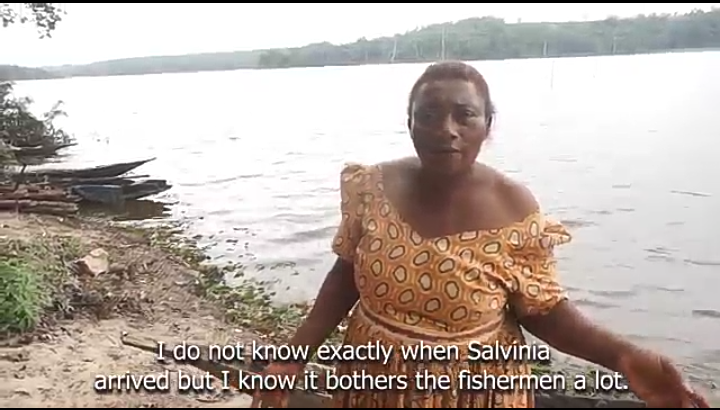
Fishing is becoming become difficult! This was a resounding remark we got from one of the dejected fishermen in the locality of Dizangue. AMMCO has been actively working around the Lake Ossa wildlife reserve, Cameroon for about 5 years now where we have our field office. In all we do, we have maintained one mission of contributing to the protection of African aquatic megafauna and habitat with a special focus on the African manatee. At present, the manatee population and wildlife biodiversity are being threatened.
What then could have made this fisherman give such a heartbreaking comment? Since 2017, we noticed the presence of an invasive plant called Salvinia molesta, a fast-spreading plant that forms a mat over the water. This plant prevents sunlight from penetrating the water column, hence reduction in phytoplankton population for fish to feed on. It has caused more harm than good including on the manatee population in the lake.
Ever since we noticed the invasion of this plant, we have been devising various strategies to totally eradicate it. We have a principle of considering the interest of the local population when harnessing any of our conservation efforts. We do this to encourage them and to ensure their cooperation in protecting the environment.
Since we are aware that fishermen around the wildlife reserve frequently use the lake resources either for fishing or transportation, we decided to consider them as a representation of the local community. We set out recently one early morning to one of the popular fish landing sites in Dizangue commonly called “Debarcadere” to conduct interview sessions with the fishermen in order to know their views on the Salvinia invasion. The fishermen had earlier struggled to grant an interview since they were going to appear in a video. This is a challenge we face with the community because their belief is that NGOs in the localities are there to extort them of information to get funding while leaving out their interests and well-being. But after much orientation, that the program was put in place to address the issue of Salvinia, they obliged. Well, at this point we got them. It was obvious they have been so threatened by this invasive plant.
They expressed their distress on how the plant has negatively impacted their income, livelihood, and work. One of them told us that the presence of the plant has led to a great reduction in the available space for setting fishing nets, the chances of getting fish for sale after struggling to spread the net is becoming slim. Before the plant invasion, fishing was good, they had in abundance to sell and take home for the family but the story changed. Most of them are totally dependent on the fishing activity, for supporting their families and sponsoring their children to school. They lamented that the Salvinia mat has obstructed access to certain areas coupled with the fact that they use manually paddled dugout canoe.
We also conducted interviews with the women we met on duty at the fish landing site. The women expressed their grief about the plant. One of them told our team that the lake water was drinkable but since the arrival of the plant they stopped drinking from the lake. They get itchy when they drink the water so they assume the plant is the cause of this. The women are mostly involved in buying and selling of fish landings. They complained about the hike in price as a result of Salvinia invasion. Fishermen are forced to increase the price of fish because there is now a limited area to fish at the lake with less catch. The women complained bitterly as they had to also compromise by buying fish that was sold for 2000FCFA($3.5) before Salvinia at 5000FCFA($8.5). They are in a village, there are really no jobs for them at their age and with their level of education hence they solely depend on fishing for means of livelihood.
At the end of the interview, they solicited for external support for the removal of the plant. They further claimed they are now incapacitated. This is because they organized among themselves to devote some time from their fishing time to manually remove Salvinia from the lake, though they get compensated with a token by some NGOs; but the plants will not stop spreading fast.
We know what to do, we know how we can help this community, the species dependent on the habitat, the threatened manatee population but we need donations to properly execute our project of biological control using the salvinia weevil (Cyrtobagous salviniae). We appreciate partners and contributions so far. You can support a worthy cause, as we seek to restore the manatee sanctuary, Lake Ossa. Donate now.
Watch the full interview in the video.


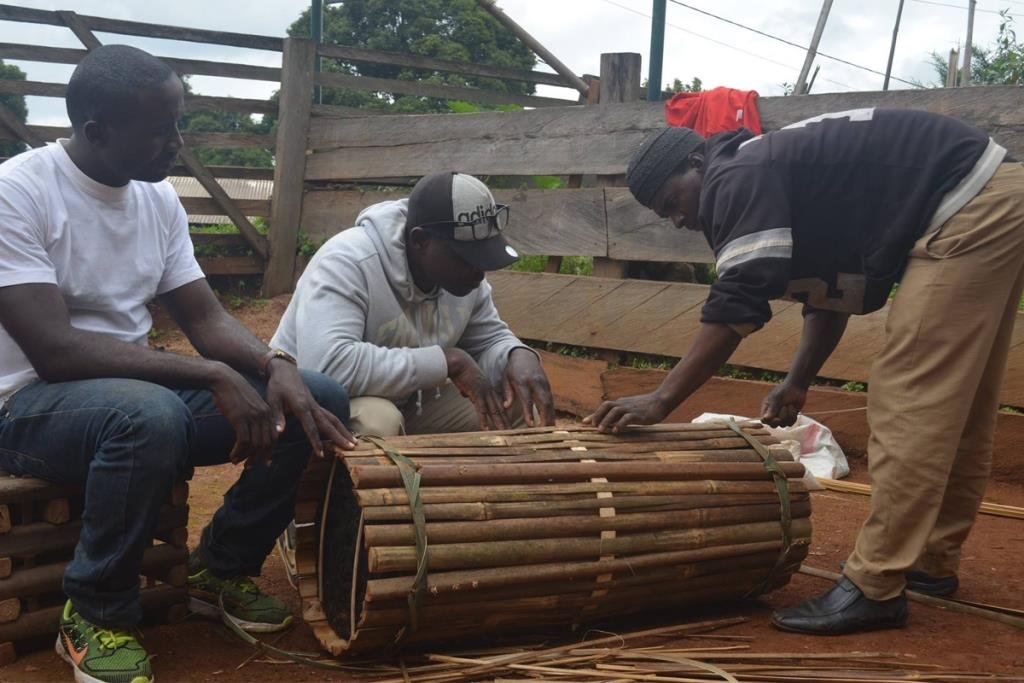
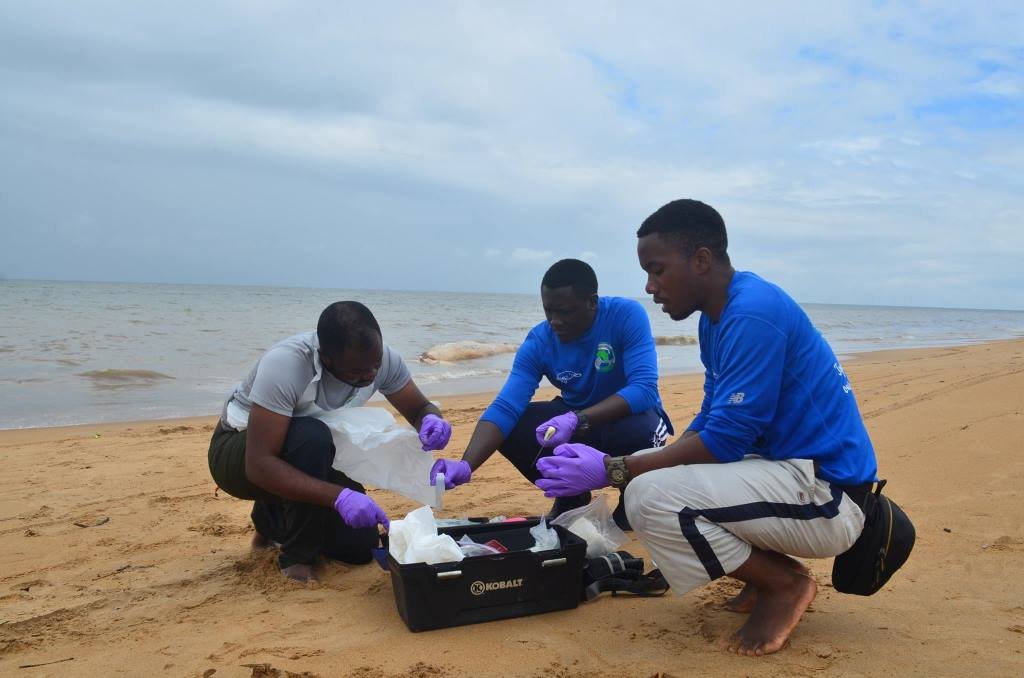
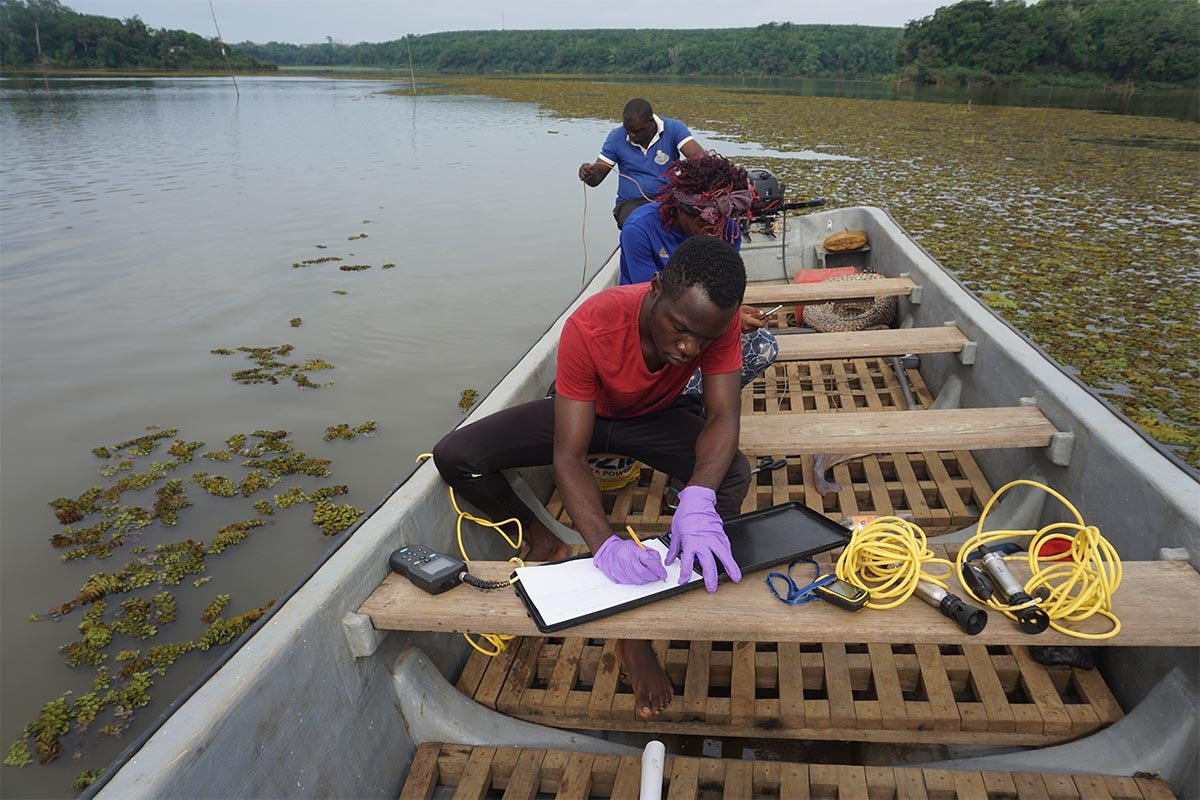



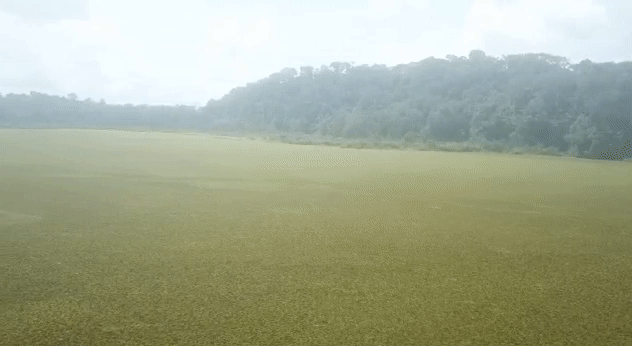


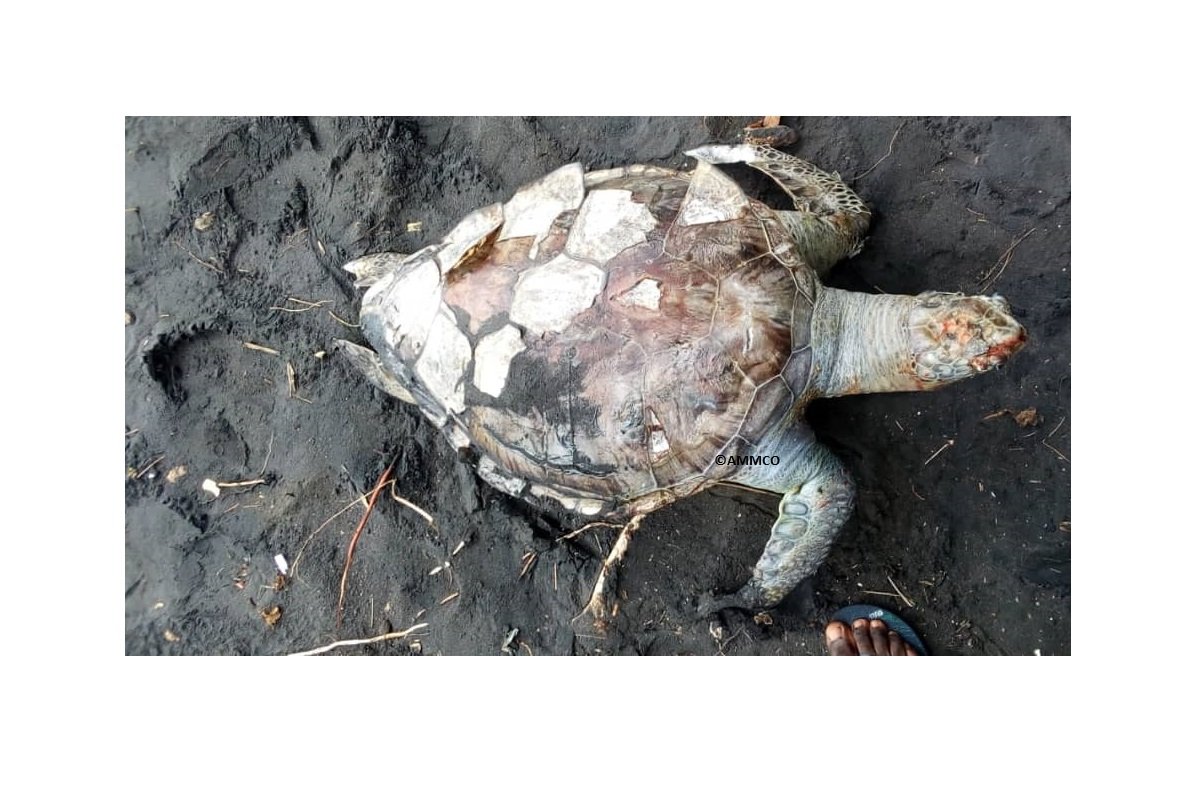


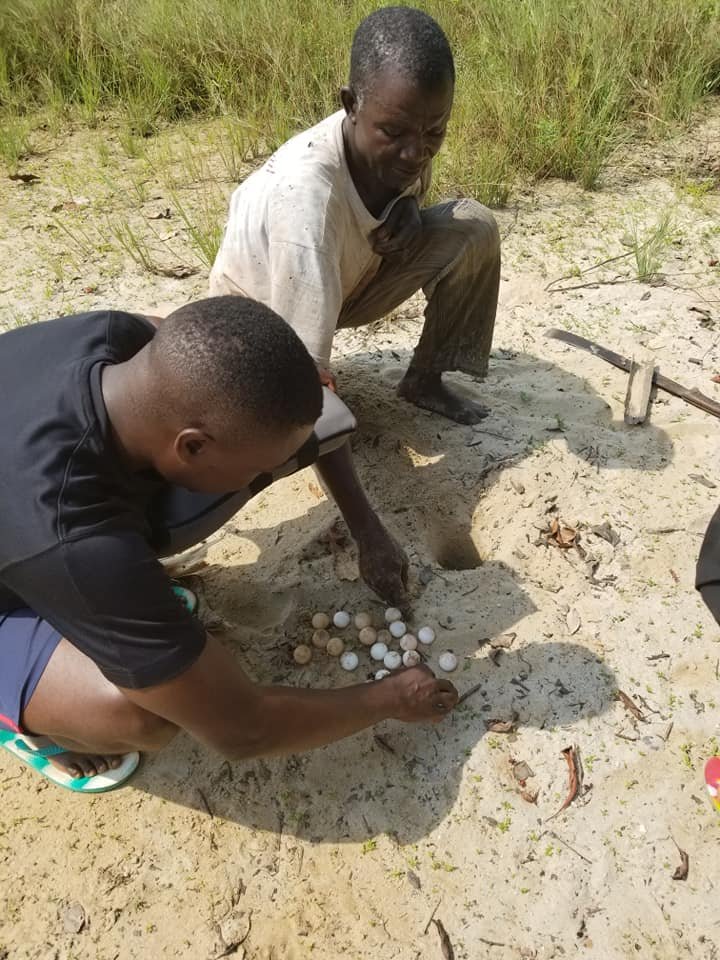
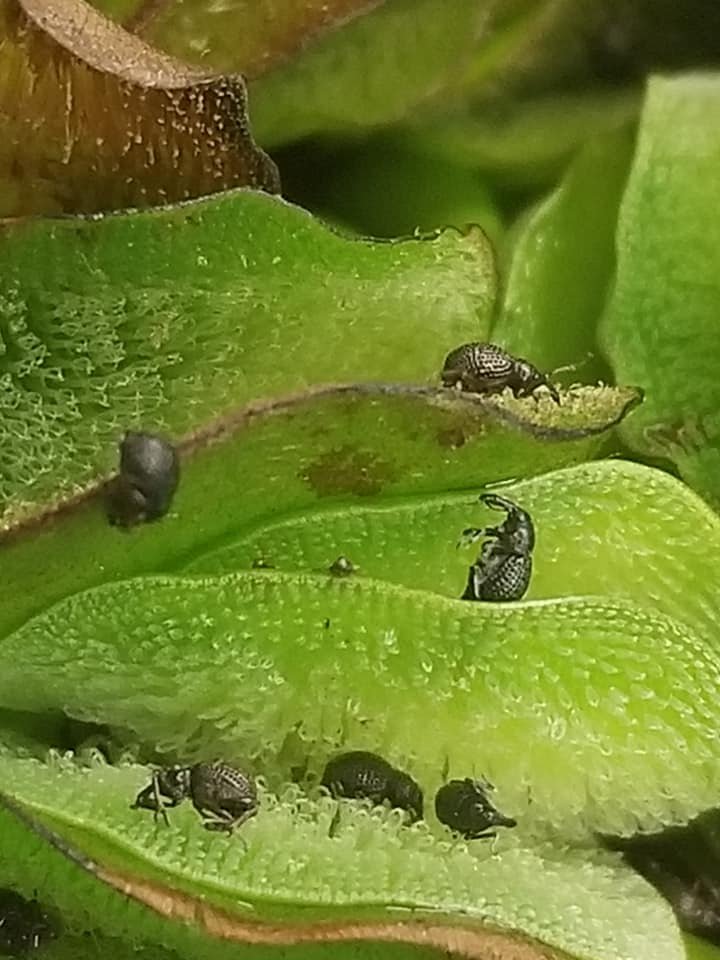
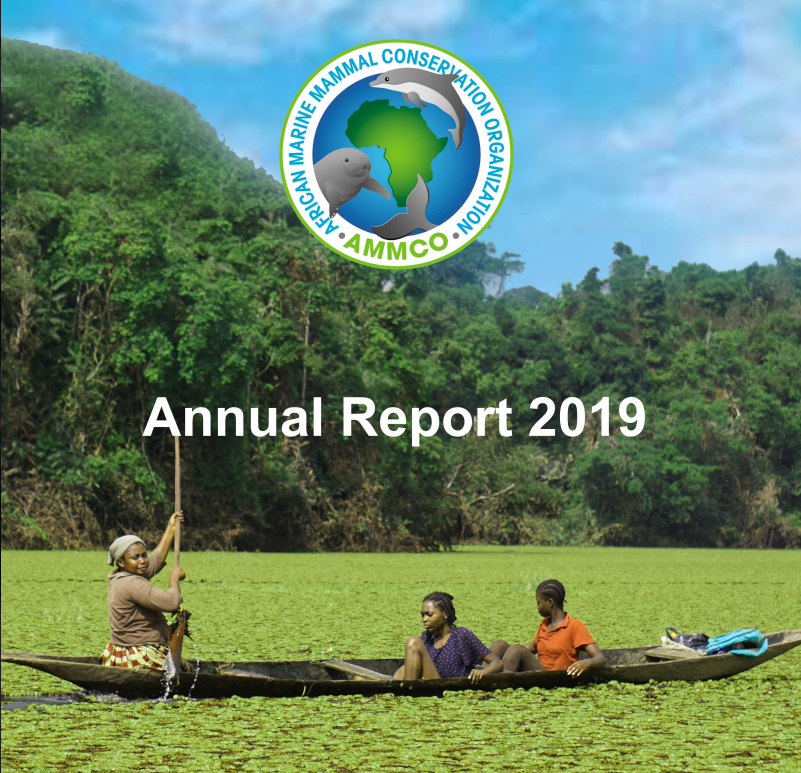

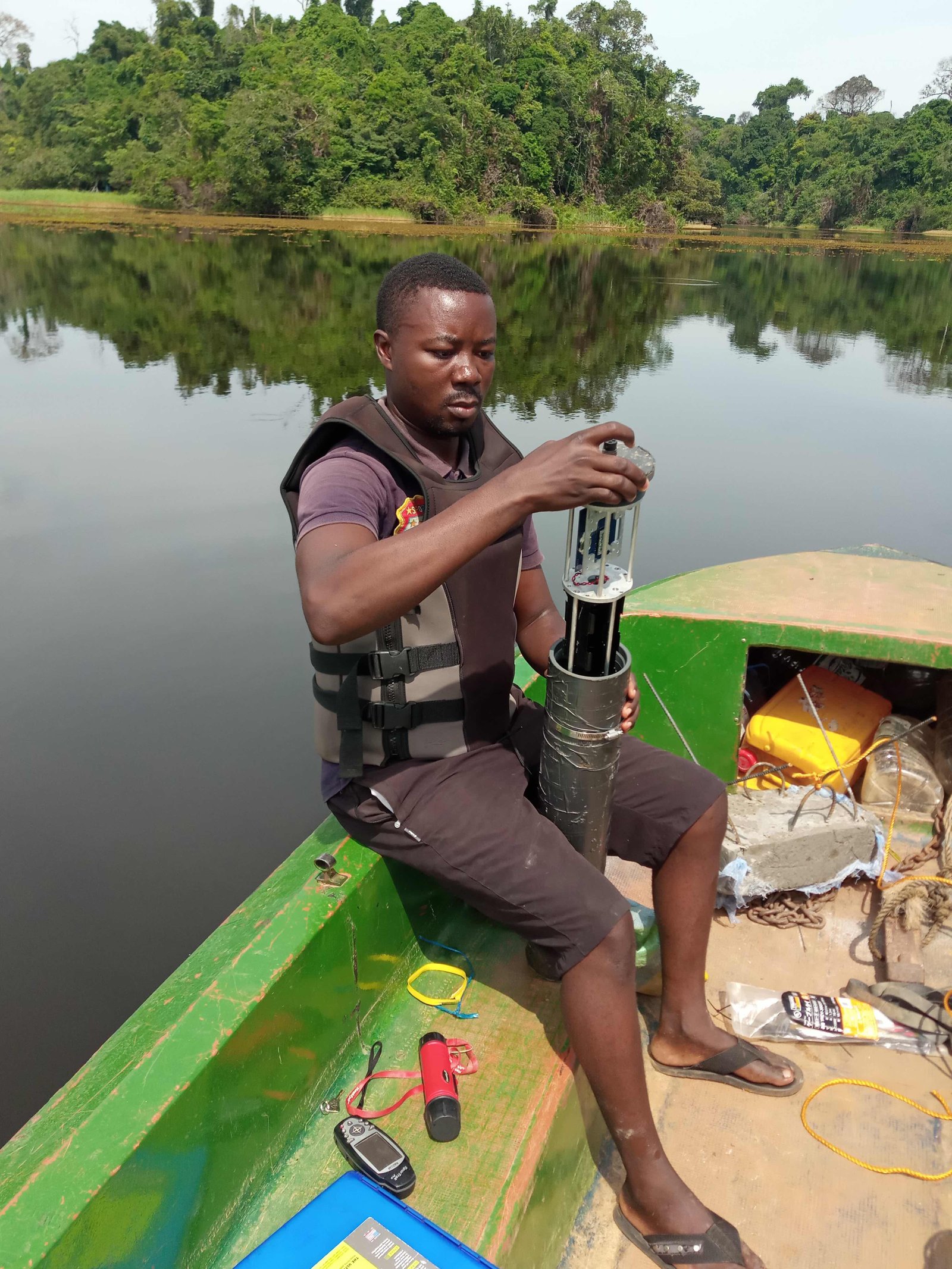


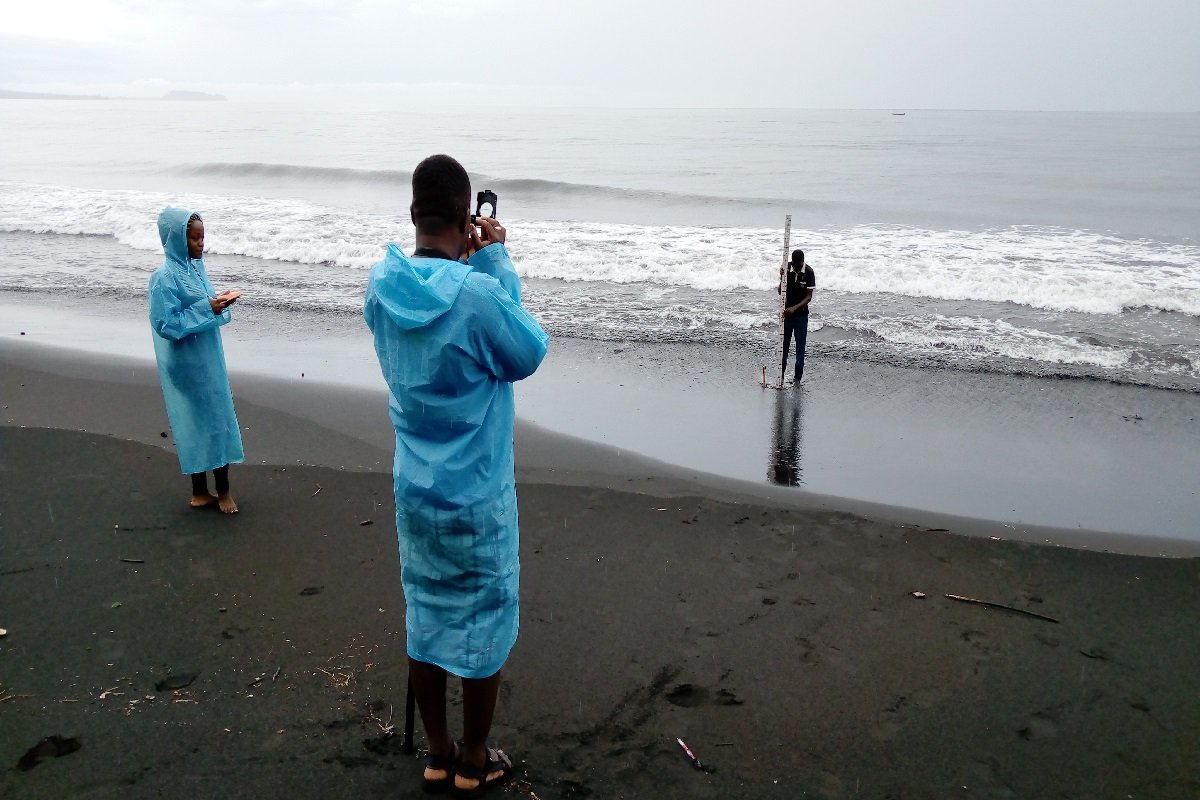
.jpg)

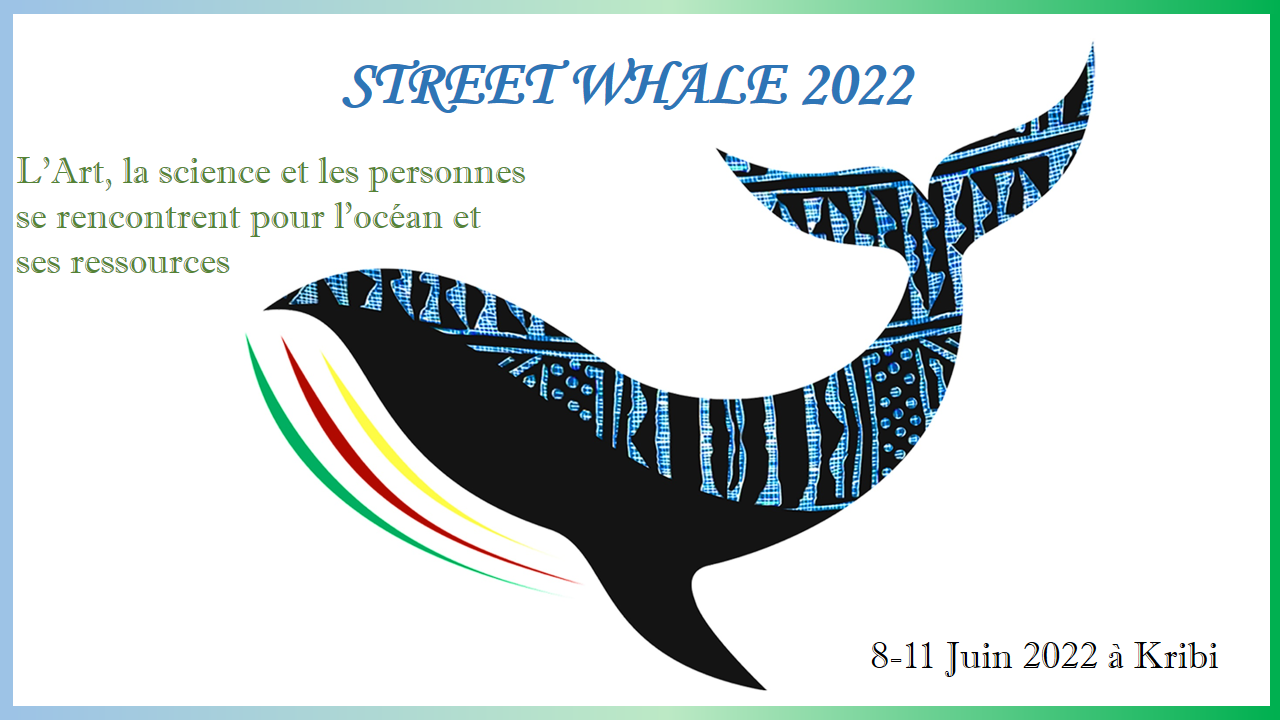
.jpeg)






.jpg)





.jpeg)
.jpeg)
.jpeg)












